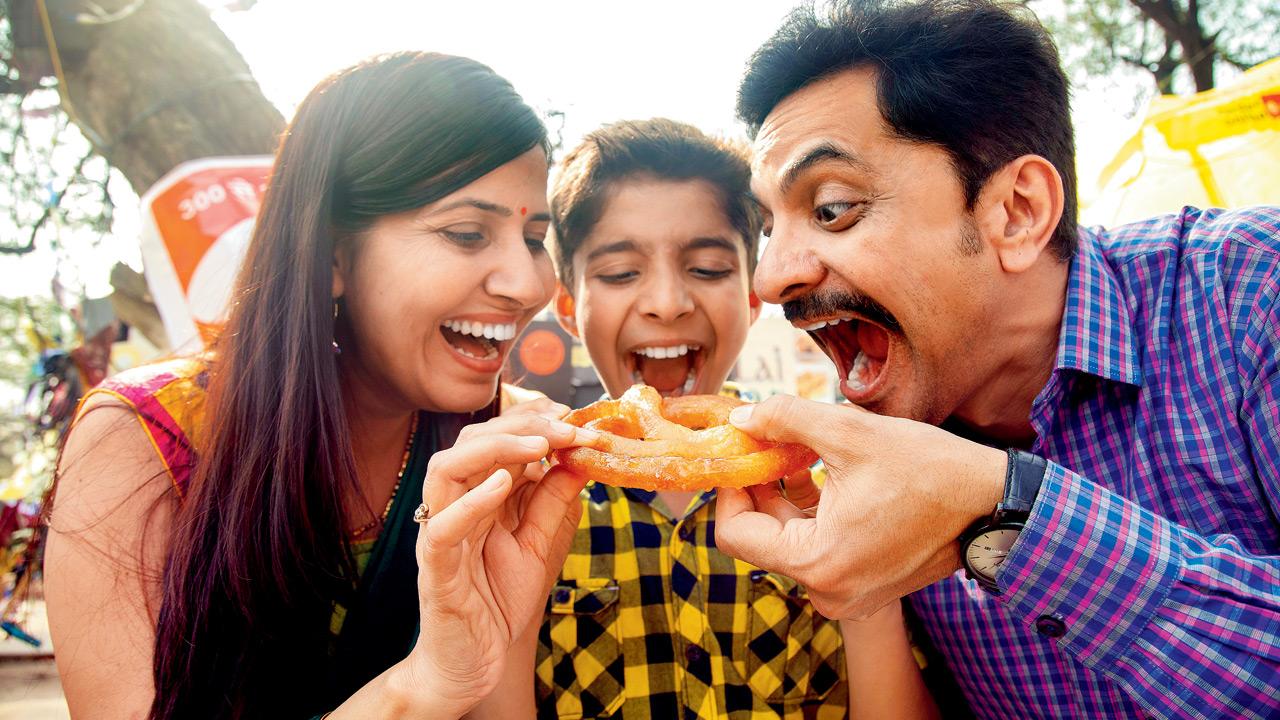The Hidden Dangers of Fast Food and the Government’s Initiative
Fast food items such as pizzas, samosas, burgers, vada pavs, soft drinks, and pastries may offer a quick burst of flavor, but they come with serious health consequences. To address this growing concern, the Union Health Ministry has issued an advisory urging government departments, offices, and public institutions to install ‘Oil and Sugar Boards’ in common areas. These boards will display crucial information about the hidden fats and sugar content in popular food items, aiming to raise awareness and encourage healthier eating habits.
This move comes in response to the rising obesity rates in India. According to the National Family Health Survey (NFHS)-5 (2019-2021), 24% of Indian women and 23% of Indian men were overweight or obese, compared to 21% and 19%, respectively, in NFHS-4 (2015-16). Excessive oil and sugar consumption is a major contributor to these unhealthy trends.
The Role of Moderation in Healthy Eating
Experts emphasize that moderation is key when it comes to consuming fried snacks and sugary foods. In May 2025, the Central Board of Secondary Education (CBSE) had already taken a similar step by urging schools to install ‘Sugar Boards’ to monitor and reduce sugar intake among students.
Tolong support kita ya,
Cukup klik ini aja: https://indonesiacrowd.com/support-bonus/
Medical professionals highlight the dangers of excessive oil and sugar consumption, which can lead to non-communicable diseases like obesity, heart problems, and diabetes. Rajeswari V Shetty, HOD – Dietetics at SL Raheja Hospital, explains that regular or excessive intake of high-fat and high-sugar snacks can increase cholesterol levels, cause weight gain, and contribute to lifestyle disorders.
Mumbai-based nutritionist Dhvani Shah adds that processed sugar causes cellular damage, leading to faster degeneration of cells and an increased risk of disease. Similarly, Mumbai-based bariatric surgeon Dr Aparna Govil Bhasker notes that high-fat and high-sugar foods are calorie-dense but low in nutrients, leading to excess calorie intake without providing satiety. Over time, this can result in weight gain and increased visceral obesity, which contributes to insulin resistance and other metabolic issues.
Impact on Heart Health
The heart is also vulnerable to the effects of unhealthy eating. Dr Parin Sangoi, interventional cardiologist at Wockhardt Hospitals, warns that the rise in bad cholesterol, blood sugar, and weight gain from consuming such foods can put significant pressure on the heart. He compares this to feeding the body empty fuel that clogs the engine, potentially leading to blocked arteries, high blood pressure, and even heart attacks.
Sangoi recommends a balanced diet rich in fruits, vegetables, whole grains, and healthy fats to support heart function and manage blood pressure. “Think of your meals as an investment in a stronger, healthier heart,” he advises.
Raising Awareness Through Transparency
Experts believe that installing ‘Oil and Sugar Boards’ is a bold and necessary step toward transparency and public awareness. Dr Sangoi emphasizes that the initiative is not about banning foods but about informing people about the contents of their meals. This could encourage healthier choices and promote moderation.
Dr Bhasker agrees, stating that such warnings can help people make informed decisions, especially as lifestyle diseases and obesity continue to rise among youth and children. Nutritionists like Dhvani Shah suggest that displaying salt content alongside oil and sugar could further enhance awareness and encourage better eating habits.
Public Response and Support
Public support for the initiative has been positive. Mumbai commuters, food vendors, and college students have welcomed the move as essential for raising awareness. Sunita Chaughule, a daily commuter, believes the boards will help people become more health-conscious. Jai Lopes, another commuter, praised the initiative for highlighting unhealthy cooking practices, such as the repeated use of oil, which she calls “slow poison.”
Students from Don Bosco Institute of Technology also see the value in such awareness campaigns. They note that today’s youth often turn to junk food due to fast-paced lifestyles, and initiatives like these can push them to take their health seriously.
Food vendors, too, have responded positively. Anand Kumar Mishra, who runs a fast-food stall in Bandra East, believes the initiative will make people more aware of what they consume and encourage them to prioritize their health.
Healthy Alternatives and Recommendations
Nutritionists recommend moderation rather than elimination when it comes to oil, sugar, and salt. Dhvani Shah explains that if consumed in balanced proportions, these elements can be processed effectively by the body. She suggests opting for healthier alternatives such as fruits, dry fruits, curd, roasted popcorn, makhana, and chana.
Rajeswari V Shetty offers practical examples of healthier meal choices. For instance, pizza can be made more nutritious by using a multigrain thin-crust base, adding plenty of vegetables, and reducing cheese content.
The Union Health Ministry’s Advisory
The Union Health Ministry’s advisory includes several key components:
- Installation of ‘Oil and Sugar Boards’ in government workplaces to promote healthier dietary habits.
- Displaying key information about hidden fats and sugars in everyday foods.
- Printing health messages on all office stationery and publications to serve as daily reminders for fighting obesity.
- Encouraging the promotion of healthy meals and physical activity in offices through nutritious food items and organizing workplace wellness initiatives.
This comprehensive approach aims to create a culture of health consciousness and support long-term well-being across the population.







